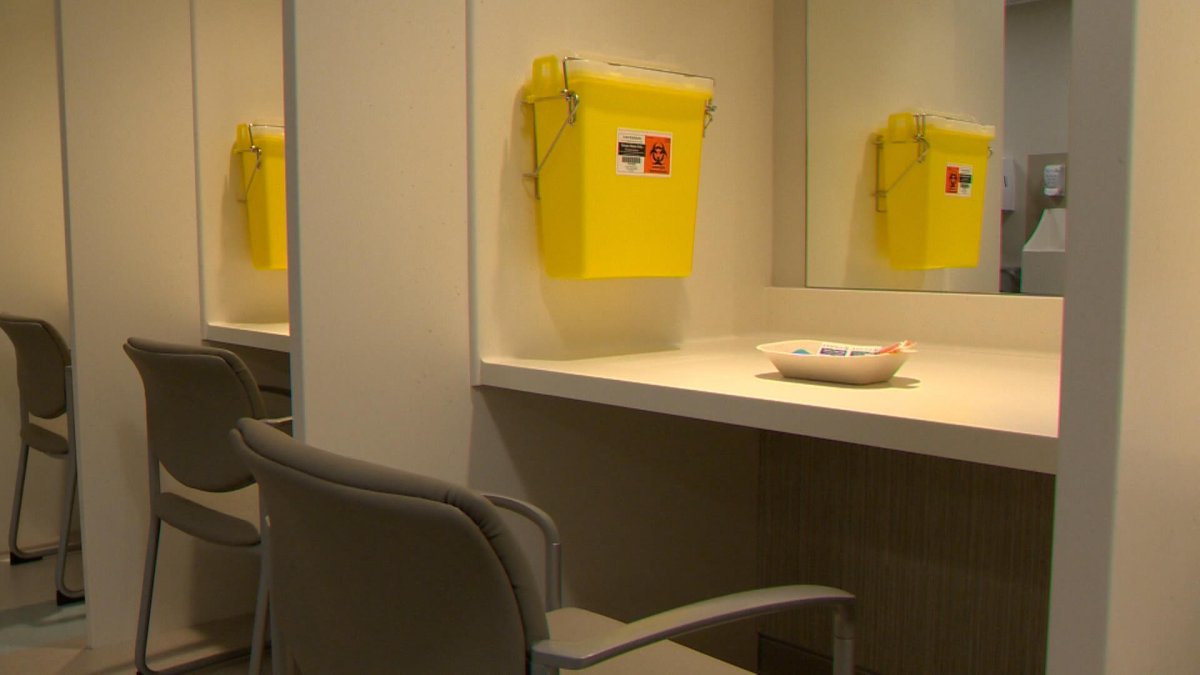Overdose prevention sites have been recognized by the federal government as a lifesaving health measure in the fight against the overdose crisis, but Nova Scotia has yet to make a commitment to operate them on a provincial level.

This year, 18 Nova Scotians have died from an opioid overdose, according to the province.
The federal government website says 94 per cent of opioid overdose deaths happen by accident.
“Approving supervised consumption sites and allowing provinces and territories to quickly set up overdose prevention sites” is a key factor in Canada’s efforts to address the crisis, according to the website.
Provincial Health Minister Randy Delorey says the province has focused its harm reduction investments on take-home naloxone kits and expanded access to opioid use disorder treatment programs.
He says he’s still not convinced an investment into an overdose prevention site (OPS) is the “right fit” for Nova Scotia.
“The question that I still have outstanding, again, is if we have that dollar amount to invest in this area… when we’re looking completely provincewide, is that the best area? So, that work is ongoing,” Delorey said.
The federal government lists overdose prevention and safe consumption sites as one of the pillars of the Canadian drugs and substances strategy.

Get weekly health news
A Dalhousie University law professor says the conversation around providing access to these health services extends far beyond Canada.
“We all have the right to the highest attainable standard of health and the United Nations itself has said that harm reduction approaches, including things such as overdose prevention sites, are part of that human rights-respecting approach,” says Archie Kaiser.
While some provinces support and fund these sites, Nova Scotia doesn’t.
Department of Health spokesperson Heather Fairbairn said in an email that “work is currently underway” to understand more about harm reduction needs in Nova Scotia.
Organizers of a proposed OPS site at the Brunswick Street Mission in Halifax say the sites play a crucial role in “meeting people where they’re at” and help reduce a wide variety of community impacts that come with public substance use, such as a reduction in public consumption and a decrease in needle debris.
The application for the proposed OPS is in the hands of Health Canada and awaiting approval.
The new site would be run by a coalition of harm reduction organizations and community support providers: the Mi’kmaw Native Friendship Centre, Direction 180, the Mainline Needle Exchange and the Brunswick Street Mission.

Cindy MacIsaac, the executive director of Direction 180, says the site will also include input from people who use drugs.
MacIsaac says the coalition applied for a donation through the United Way Halifax’s Atlantic Compassion Fund.
Its application for $34,782 to operate the site was approved.
“Of course, not funding this program would leave individuals at increased risk for harm and perhaps life-threatening conditions,” says Sue LaPierre, director of community impact at United Way Halifax. “We were happy to support the reopening of the site with increased hours.”
MacIsaac says the funding will allow the OPS to operate until the end of March 2021 but without provincial backing and support, overdose prevention sites won’t last in the province.
Kaiser feels it’s time the province accepted the overdose prevention model as a necessary investment in harm reduction services for all Nova Scotians.
“The fact that local overdose prevention sites have been, so far, just supported through charitable donations, really doesn’t look good for Nova Scotia compared to many other provinces where it’s just accepted that this an integrated part of our health budget,” says Kaiser.










Comments